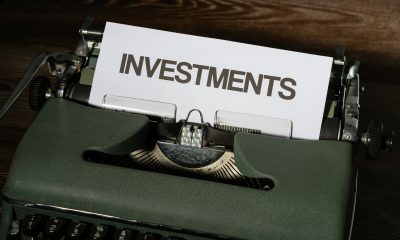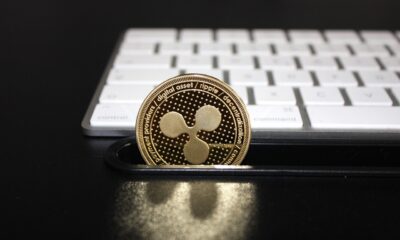Featured
Spanish Fund Managers Lag Behind in the Adoption of Sustainable Funds
Until this year, Spanish fund managers have had very little culture of funds with a sustainable profile. According to many of them, this was because the public had no interest in this type of investment. However, with European regulations, more and more firms have launched specific products. Inverco data reveals that 35% of the firms are already noticing an increased demand.

The green tide is reaching Europe’s asset management industry. So far this year, almost two out of every three euros of new money in mutual funds has gone into sustainable products. However, this trend is arriving very slowly in Spain.
The consultancy firm PwC has prepared a detailed report on the degree of penetration in each country of investment vehicles that have an environmental, social, and good corporate governance (ESG) component. In accordance with European regulations, funds that take these ESG aspects into account in a generic way are called Article 8 funds, and those that have a specific objective in this area, the “pata negra”, are Article 9 funds.
At the end of the first half of the year, there were ESG funds registered in the European Union with an aggregate volume of assets of 3.08 trillion euros, which represents 32% of the total. The firm estimates that this could reach 7.6 trillion euros by 2025.
And who are the fund managers with the most money in sustainable funds? The French Amundi stands out, the largest in the Eurozone, which as of June had 269,000 million euros registered under articles 8 and 9. A slightly lower figure (242 billion) was held by BlackRock, the U.S. giant. Above 100 billion euros in sustainable funds are names such as BNP Paribas (France), Swedbank (Sweden), Nordea (Scandinavia) or Allianz Global Investors (Germany), or the U.S. firm JP Morgan.
Read why Spanish fund managers lag behind in the adoption of sustainable funds and find the latest business headlines of the day with the Born2Invest mobile app.
Low demand for sustainable funds from the public
It is difficult to know whether the chicken or the egg came first. Until this year, Spanish fund managers have had very little culture of funds with a sustainable profile. According to many of them, this was because the public had no interest in this type of investment. However, with European regulations, more and more firms have launched specific products. Inverco data reveals that 35% of the firms are already noticing an increased demand.
Expanding the list to the top 20, there are fund managers from the Netherlands (Robeco and NN Investment Partners), Switzerland (Pictet and UBS), Scandinavia (SEB Group), Italy (Eurizon, Intesa Sanpaolo’s fund manager), France (Crédit Mutuel), Germany (DWS)… but none from Spain.
According to the PwC study, the first Spanish fund manager to appear in the ranking is Kutxabank, with 14.35 billion euros in sustainable funds. The large Spanish fund manager, CaixaBank AM, had only 5,320 million in Article 8 and 9 funds as of June, and BBVA AM, 2,217 million.
The fund managers explain that the process of registering and converting the new funds has been slow, in order to be able to frame them within the new European categories (Article 8 and 9). At CaixaBank, for example, they hoped to close the year with 40% of their funds with ESG consideration, which could mean more than 20,000 million euros. In September they already had 11,076 million. However, the integration of Bankia has delayed the process. Moreover, it would still not even make it into the top 20 European fund managers for sustainable funds.
Luc Olivier, sustainable fund manager at the boutique La Financière de l’Échiquier, explains that France has been preparing to become a benchmark in sustainable finance for years. “First it was with a law obliging companies to detail their carbon footprint, then came the Paris climate summit, and little by little an environment has been created that is very conducive to sustainable investment.” In Germany and the Nordic countries, pension funds have also been ahead of European regulation, requiring managers to take extra-financial criteria into account when managing their money.
Thus, while some international fund managers already have quotas of more than 70% of their funds with a sustainable profile, in Spain the average percentage up to September was between 5% and 10% of total assets under management. Of the large ones, only Kutxabank stands out, with 75% of the total.
__
(Featured image by nattanan23 via Pixabay)
DISCLAIMER: This article was written by a third party contributor and does not reflect the opinion of Born2Invest, its management, staff or its associates. Please review our disclaimer for more information.
This article may include forward-looking statements. These forward-looking statements generally are identified by the words “believe,” “project,” “estimate,” “become,” “plan,” “will,” and similar expressions. These forward-looking statements involve known and unknown risks as well as uncertainties, including those discussed in the following cautionary statements and elsewhere in this article and on this site. Although the Company may believe that its expectations are based on reasonable assumptions, the actual results that the Company may achieve may differ materially from any forward-looking statements, which reflect the opinions of the management of the Company only as of the date hereof. Additionally, please make sure to read these important disclosures.
First published in CincoDias, a third-party contributor translated and adapted the article from the original. In case of discrepancy, the original will prevail.
Although we made reasonable efforts to provide accurate translations, some parts may be incorrect. Born2Invest assumes no responsibility for errors, omissions or ambiguities in the translations provided on this website. Any person or entity relying on translated content does so at their own risk. Born2Invest is not responsible for losses caused by such reliance on the accuracy or reliability of translated information. If you wish to report an error or inaccuracy in the translation, we encourage you to contact us.

-

 Business6 days ago
Business6 days agoTopRanked.io Weekly Affiliate Digest: What’s Hot in Affiliate Marketing [Health Trader Affiliate Program Review]
-

 Business2 weeks ago
Business2 weeks agoTopRanked.io Weekly Affiliate Digest: What’s Hot in Affiliate Marketing [Hosting.com Affiliates]
-

 Africa1 day ago
Africa1 day agoAir Algérie Expands African Partnerships
-

 Crypto1 week ago
Crypto1 week agoEthereum Pushes AI Integration With ERC-8004 and Vision for Autonomous Agents
























